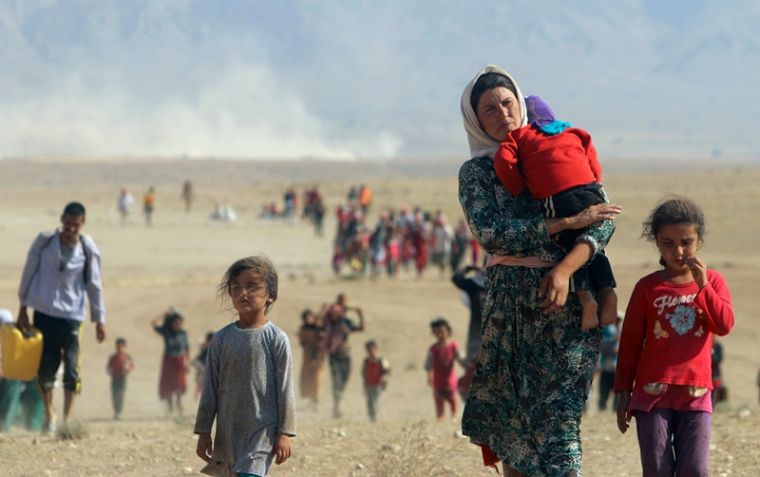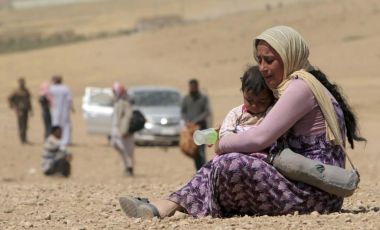The forgotten Yazidis: Thousands still stranded on Mount Sinjar

The story of the Yazidis' flight from ISIS, seeking refuge on the barren Mount Sinjar, gripped our news screens a year ago.
The world watched and waited as thousands of Yazidis, one of Iraq's oldest religious minorities, found themselves trapped, and ISIS laid siege. It spaked an international response – both US and British air forces dropped humanitarian aid on the mountain and a large scale military rescue operation was considered by Whitehall and the Pentagon.
Over a year later, and the Yazidis have largely vanished from our news channels – our attention has been diverted, understandably, to the plight of Syrian refugees making the perilous journey to Europe. However, thousands of Yazidis remain on top of Mount Sinjar, largely forgotten and mostly without help, according to a special report by IRIN.
Most Yazidis were able to move on from the mountain when Kurdish forces broke ISIS's siege in December 2014. But it is the injured, the weak and the frail that are still stranded.
When ISIS invaded a village in north western Iraq, Bapir Hassan Saed owned 100 sheep. He now owns just four and is one of the 8,750 who remain on the mountain range.
"It's hard to keep the family going, but we're forced to stay here," the father of 10 told IRIN.

With winter fast approaching, his four sheep are all he has to provide milk, yogurt and wool for his large family. The tents airdropped when they first arrived are now in tatters and the supply of kerosene fuel for the cold season is nearly empty.
Several Yazidi children died of exposure on the mountain last winter, one woman said. With worse supplies, and an absence of fuel and medical facilities, many more are expected to perish this winter.
However, the region does not just represent a humanitarian hotspot, but a political one as well. Many of the different Kurdish political and military groups have an interest in the fate of those on the mountain.
The region lies on a major oil pipeline and for some NGOs this makes operating impartially tough or even impossible. Even if they have the resources to reach the Yazidis, for some it is just too political to be able to distribute aid effectively.
"From the difficulties of access and security concerns to the highly politicised nature of the operating environment, implementing humanitarian projects [on Mount Sinjar] can be challenging," summarised Tom Robinson, director of the local charity Rise Foundation.
The US and Britain called off a military rescue was because they decided the condition of the Yazidis was better than expected, and indeed by now a sense of normalcy reigns over the displaced community. There are two schools on the mountain, although most of the children don't attend, and some families have started businesses selling flour, vegetables and other groceries.
But the constant roar of fighter jets overhead and the looming presence of a long winter means that the calm will be short-lived. With the world's aid agencies focusing on refugees around the Mediterranean, the casualities on Mount Sinjar will have to face the cold alone.











